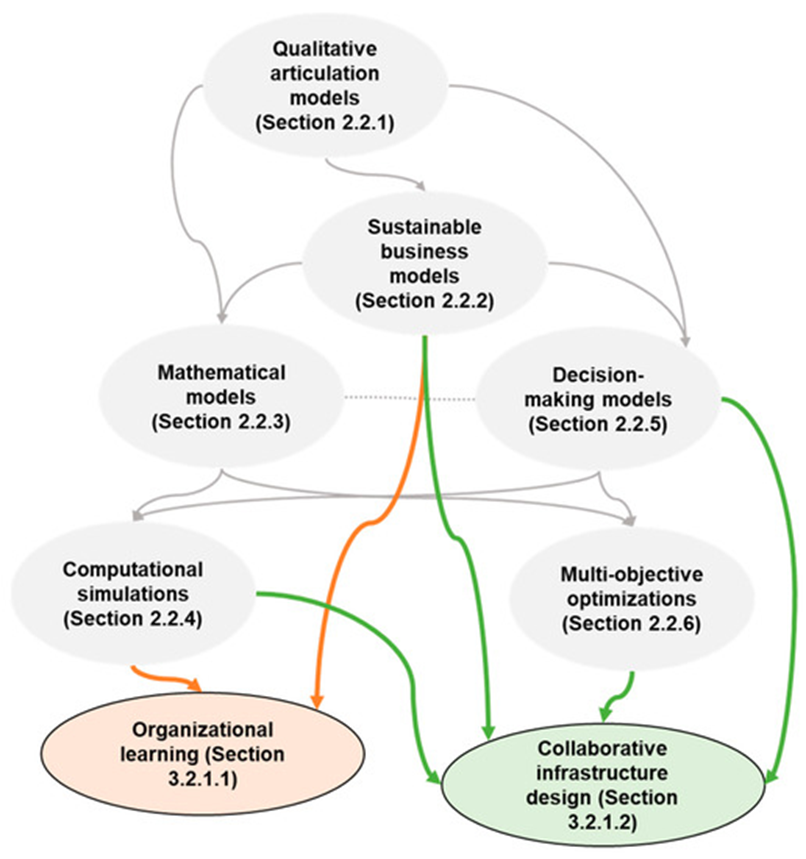World Electric Vehicle Journal : Perspectives on Modeling Energy and Mobility Transitions for Stakeholders: A Dutch Case
Authors:Younjung Choi, Marcus Vinicius Pereira Pessoa, and G. Maarten Bonnema

We address the value of engaging stakeholders in energy and mobility transitions by using models. As a communication medium, models can facilitate the collaborative exploration of a future between modeling researchers and stakeholders. Developing models to engage stakeholders requires an understanding of state-of-the-art models and the usability of models from the stakeholder perspective. We employ mixed methods in our research. We present the overview of models that have been proposed to make sense of the transitions in the scientific literature through a systematic literature mapping (n = 105). We interviewed 10 stakeholders based in The Netherlands to elaborate on use cases in which models can benefit stakeholders in practice and the characteristics of usable models. We conclude our research by elaborating on two challenges of model design that modeling research can consider to engage stakeholders. First, we argue that understanding the epistemic requirements of both modeling researchers and stakeholders that models can simultaneously meet is crucial (e.g., questions addressed using models and assumptions). Second, we seek technical solutions for producing models in a time-wise manner and developing interfaces that allow models distant in formalism and represented phenomena to communicate in tandem. Our research creates awareness of the model design aspect by considering its usability.
In the same category
- “Driving Collaboration in Europe's Thriving EV Sector: opportunities for emissions reductions”
- Autel Energy bringing innovative new EV chargers across Europe
- Baden-Württemberg on its way to becoming the top location for e-mobility
- ECO/G
- Empowering the Transition to Electric Mobility: Equans' Smart Charging Solutions
- Hyundai
- Leapmotor
- Sungrow EV Charging Introduced Low and Fast EV Charging solutions
- Total Energies
- Why Submit to World Electric Vehicle Journal?
- World Electric Vehicle Journal : Analysis of Energy Flow in a Mid-Sized Electric Passenger Vehicle in Urban Driving Conditions
- World Electric Vehicle Journal : Battery Health Monitoring and Degradation Prognosis in Fleet Management Systems
- World Electric Vehicle Journal : Evaluation of a Back-up Range Extender and Other Heavy-Duty BEV-Supporting Systems
- World Electric Vehicle Journal : Implementation Schemes for Electric Bus Fleets at Depots with Optimized Energy Procurements in Virtual Power Plant Operations
- World Electric Vehicle Journal : Investigation and Development of Textile Lightweight Bodies for Urban Logistic Vehicles
- World Electric Vehicle Journal : Leveraging Connected Vehicle Data to Assess Interstate Exit Utilization and Identify Charging Infrastructure Investment Allocation Opportunities
- World Electric Vehicle Journal : Performance Comparison of Si IGBT and SiC MOSFET Power Module Driving IPMSM or IM under WLTC
- World Electric Vehicle Journal : Perspectives on Modeling Energy and Mobility Transitions for Stakeholders: A Dutch Case
- World Electric Vehicle Journal : Proposing a Hybrid Thermal Management System Based on Phase Change Material/Metal Foam for Lithium-Ion Batteries
- World Electric Vehicle Journal : Second-Life Batteries Modeling for Performance Tracking in a Mobile Charging Station
- World Electric Vehicle Journal : The “Semiconductor Crisis” as a Result of the COVID-19 Pandemic and Impacts on the Automotive Industry and Its Supply Chains
- World Electric Vehicle Journal : Thermal Analysis of Coupled Resonant Coils for an Electric Vehicle Wireless Charging System